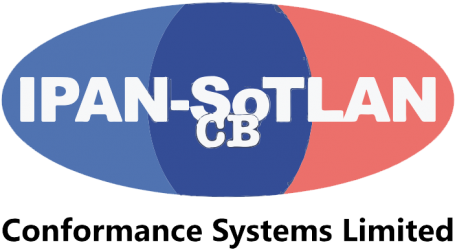Laboratory Analyst candidates should be acquainted with the basic disciplines of analytical Science and laboratory techniques.
Laboratory Analyst candidates should be acquainted with the basic disciplines of analytical Science and laboratory techniques.
Laboratory Analyst Certification is designed to demonstrate competency at the entry and basic working level. It implies competence in the knowledge, skills and abilities required to perform the Core Duties of an entry/basic level and semi-skilled laboratory analyst.
Education: Higher National Diploma (HND) or Bachelor of Science (B. Sc.) Degree in Biochemistry; Chemistry; Food Science and Technology; Industrial Chemistry; Microbiology or Pharmacy.
Work Experience: A minimum of two (2) years cognate post-qualification experience in basic physicochemical and microbiological analyses in an analytical laboratory.
An analytical laboratory means a third party/private; or quality control; or standards and regulatory; or research and tertiary institutions’ laboratories. In addition, candidates should be able to personally take readings and measurements from laboratory apparatus and equipment and walk within the laboratory work area without any attendant safety concerns.
Persons certified as Laboratory Analyst are expected to have acceptable competence when carrying out applicable tasks that are required for entry/basic level and semi-skilled laboratory analyst. These applicable tasks are called Core Duties and the certification test measures knowledge, skills and abilities needed to perform these Core Duties.
Core Duties in Laboratory Analyst
i) Performs basic physicochemical analyses in an analytical laboratory.
ii) Performs basic microbiological analyses in an analytical laboratory.
iii) Maintains routine documentation, sample documentation, record data precisely and accurately.
iv) Operates and maintains basic laboratory test equipment, e.g. pH meters, weighing balances, UV/Visible Spectrophotometer, etc. and performs routine calibration/validation of laboratory equipment that does not require external calibration expertise.
v) Carries out collection, handling and preparation of samples in accordance with approved laboratory procedures.
vi) Prepares, sterilizes and stores laboratory glassware.
vii) Prepares chemical reagents, standard solutions and culture media.
viii) Performs basic quality control tests for all reagents, media and generated laboratory data
An outline of Test Content Areas is listed below. Each content area is a Knowledge, Skill or Ability that is needed to carry out the Core Duties which are enumerated above. To demonstrate acceptable competency, most of the Knowledge, Skills or Abilities are equally important and required to perform the Core Duties.
Test Content Areas for CLA
Knowledge of:
i) Basic physical, chemical and microbiological properties of samples analyzed in an analytical laboratory.
ii) Basic methods and techniques used in qualitative and quantitative laboratory analysis.
iii) The operation and maintenance of basic laboratory equipment.
iv) Sampling methods, sample preparation and preservation techniques.
v) Laboratory hazards, safety precautions and procedures; chemical hygiene and laboratory protective equipment.
vi) Laboratory chemicals and media, methods for preparation of standardized reagents and media.
vii) Methods of cleaning and storing laboratory glassware.
viii) Basic laboratory calculations with regard to results of laboratory analysis.
Skill to:
i) Perform qualitative and quantitative laboratory analyses.
ii) Communicate clearly and concisely in oral and written English language.
iii) Establish and maintain good interpersonal and effective working relationships within a team and with clients.
Ability to:
i) Perform physico-chemical and biological analyses in an analytical laboratory, including proper sampling, sample preparations and preservations.
ii) Maintain accurate, reliable and necessary/required information with regard to all laboratory analysis and records.
iii) Adhere to established safe working practices, including oral and written instructions.
iv) Clean and prepare laboratory equipment, glassware and ensure observance of good laboratory practices (GLP).
v) Read, comprehend and comply with approved procedures in preparing standard reagents and media.
vi) Perform routine and basic laboratory calculations.
